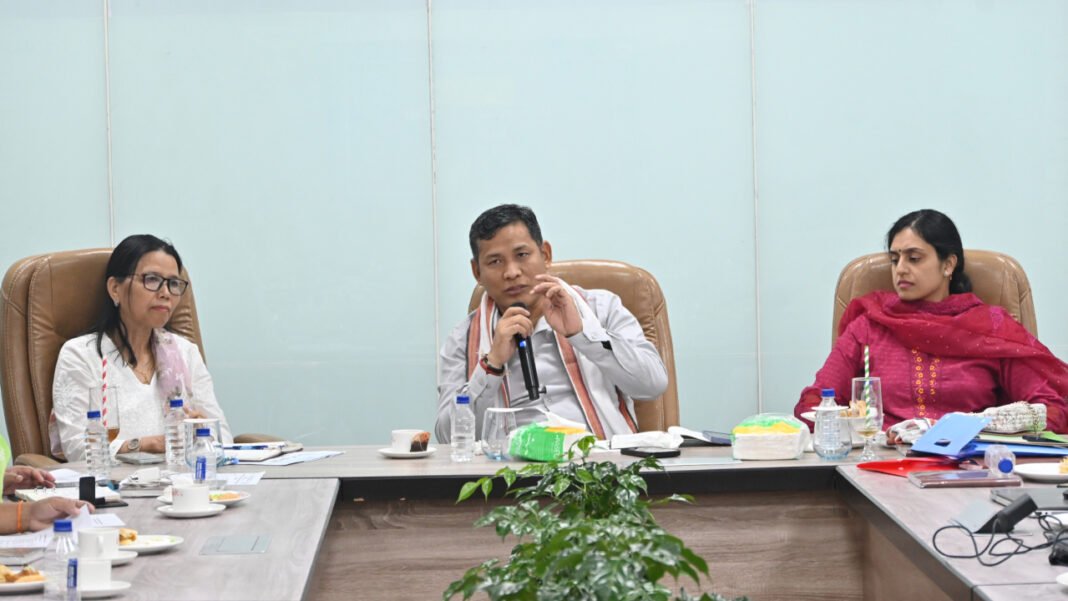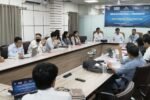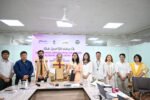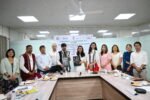HT Correspondent
ITANAGAR, Aug 7: In a move aimed at intensifying rural development efforts and strengthening livelihood interventions across Arunachal Pradesh, Minister for Rural Development and Panchayati Raj, Ojing Tasing, chaired a comprehensive review meeting on the implementation of two major central schemes—Deendayal Antyodaya Yojana-National Rural Livelihoods Mission (DAY-NRLM) and Deen Dayal Upadhyaya Grameen Kaushalya Yojana (DDU-GKY)—under the aegis of the Arunachal State Rural Livelihoods Mission (ArSRLM).
The meeting was convened at the State Mission Management Unit (SMMU) Conference Hall in Itanagar and adopted a workshop-styled format that allowed for detailed deliberations on operational progress, internal mechanisms, and field-level challenges.
According to an official statement, the format enabled thematic presentations by vertical leads across various critical domains including Institution Building and Capacity Building (IBCB), Model Cluster Level Federations (MCLF), Social Inclusion and Social Development (SISD), Farm and Non-Farm Livelihoods, Financial Inclusion, Human Resources, Monitoring and Evaluation, Management Information Systems (MIS), Financial Management, and updates on DDU-GKY and Rural Self Employment Training Institutes (RSETIs).
The proceedings began with an opening note by the CEO-cum-State Mission Director of ArSRLM, who outlined the vision, current performance indicators, and forward-looking strategies of the Mission.
This was followed by remarks from the Secretary of the Department of Rural Development and Panchayati Raj, Government of Arunachal Pradesh, who stressed the importance of inter-departmental coordination and robust data-backed decision-making in driving outcomes.
The highlight of the session was the extensive address and advisory issued by the Minister, which covered strategic priorities, governance directions, and programme recalibrations for enhanced impact.
Commending the workshop format, Minister Ojing Tasing noted that the interactive structure gave him valuable insight into the inner workings and cross-functional synergies of the Mission.
He directed the Chief Operating Officer (Program) to institutionalize such meetings on a monthly basis, assuring his regular presence and participation in these engagements.
He emphasised that periodic reviews would serve as a vital tool in driving accountability, policy responsiveness, and outcome-oriented governance.
While acknowledging the efforts of the ArSRLM team and their commitment to rural upliftment, the Minister urged officials to aim beyond the routine and collectively push the Mission into a phase of innovation-driven transformation.
He remarked that ArSRLM had emerged as a consistent performer and a point of pride during Ministry-level reviews, positioning it as a critical flagship institution within the state’s development framework.
The Minister assured that all challenges raised by the thematic leads were being taken seriously and pledged full cooperation in resolving them.
He further acknowledged that while some systemic issues may take time, he remained committed to co-creating progressive solutions in partnership with the Mission’s leadership and staff.
One of the major concerns raised during the review was the high number of non-operational Van Dhan Vikas Kendras (VDVKs) across the state.
Expressing his concern, the Minister reaffirmed his commitment to revitalising these centers, which play a vital role in unlocking tribal and forest-based economic potential.
He stated that a concerted push would be made to revive and operationalise the VDVKs so that they serve their intended purpose of community empowerment and income generation.
The Minister also highlighted the need for comprehensive last-mile connectivity, calling upon officials to ensure that no household is excluded from the Mission’s interventions, regardless of geographical or logistical barriers.
According to the official statement, he emphasised that inclusivity must remain a non-negotiable principle in all aspects of programme execution.
Further, as part of long-term human resource and institutional strengthening, the Minister proposed exploring opportunities under the Centre’s Mission Karmayogi initiative to deliver administrative and leadership training for Mission functionaries at various levels.
He noted that such capacity-building efforts would enhance operational efficiency and professionalise the management cadre, thereby improving service delivery at the grassroots.
The review meeting has laid the foundation for renewed momentum and collective accountability across all tiers of ArSRLM.
By bridging strategic planning with grassroots realities, the government’s leadership has underscored its commitment to equitable and sustainable development in rural Arunachal Pradesh.
The official statement added that the Minister’s engagement not only served as a morale booster for the Mission team but also set a precedent for participatory and results-oriented governance.
With a focus on convergence, innovation, and inclusivity, the review meet signalled a strong push towards making rural livelihoods programmes more resilient, scalable, and aligned with the developmental aspirations of the people of Arunachal Pradesh.












